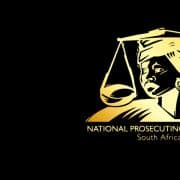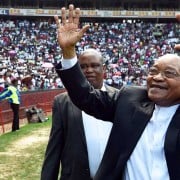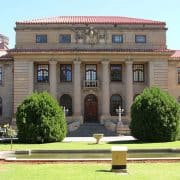|
Getting your Trinity Audio player ready...
|
A full bench of the North Gauteng High Court has dismissed the application by President Jacob Zuma and the National Prosecuting Authority (NPA) officials for leave to appeal the spy tapes ruling.
In April, the North Gauteng High court found the prosecuting authority’s decision to drop corruption charges against Zuma was irrational, and set aside the decision.
Legal experts expressed a dim view of the application, saying that there was not much chance of success. “I … predict that the NPA will not succeed with its appeal before the Supreme Court of Appeal (SCA),” said constitutional law professor Pierre de Vos. “Given the fact that the legal precedent is so heavily stacked against the NPA and given what the SCA has previously said about the charges against President Zuma, I suspect the NPA has about as much chance of winning the appeal before the SCA than I have of scoring the winning goal for Bafana Bafana in the Soccer World Cup final.”
Our board member Advocate Vusi Pikoli said the grounds for appeal looked “quite thin”, despite the NPA having the legal right to do so.
The applicants invented novel legal grounds by misinterpreting sections of the judgment or some selected sentences, said Deputy Judge President Aubrey Ledwaba, reading out the judgment
Although the NPA argued that the judgment has profound implications for its independence, the court disagreed. “Just because the matter is of interest to the public is not a justification to grant leave to appeal,” said Ledwaba. “Leave to appeal would only be given if there is a reasonable prospect of success or some other compelling reason.”
Ledwaba continued: “We considered whether the application would have a chance of success and found no merits in the arguments raised by Zuma and the NPA. So the application for leave to appeal is dismissed. We hand down the judgment.”
The first (acting national director of public prosecutions [NDPP]), second (head of Directorate of Special Operations [Scorpions]) and third (Zuma) applicants were jointly and severally ordered to pay the costs of the respondents, including the costs of two counsel.
Long battle
The DA, which has been fighting the case for seven years, had asked the court to review the 2009 decision to drop the 18 charges of fraud, corruption and racketeering – relating to 783 dodgy payments – against Zuma, related to the multi-billion-rand arms deal. Acting NDPP Mokotedi Mpshe had dropped the charges on the basis that Scorpions boss Leonard McCarthy had allegedly manipulated the timing of when to serve the indictment against Zuma, with 2007 ANC party elections around the corner.
Mpshe relied on recorded conversations – known informally as the spy tapes – between McCarthy and former NPA boss Bulelani Ngcuka in which they discussed when to serve an indictment against Zuma for the corruption charges. The indictment was served in December 2007 but the charges were dropped just weeks before Zuma first took the oath of office, about 18 months later.
The DA maintained the timing of the charges had not prejudiced Zuma in any way. Furthermore, Ledwaba said, “Mr Mpshe relied on English and Hong Kong case law to support his decision,” while these did not, in fact, support the decision.







